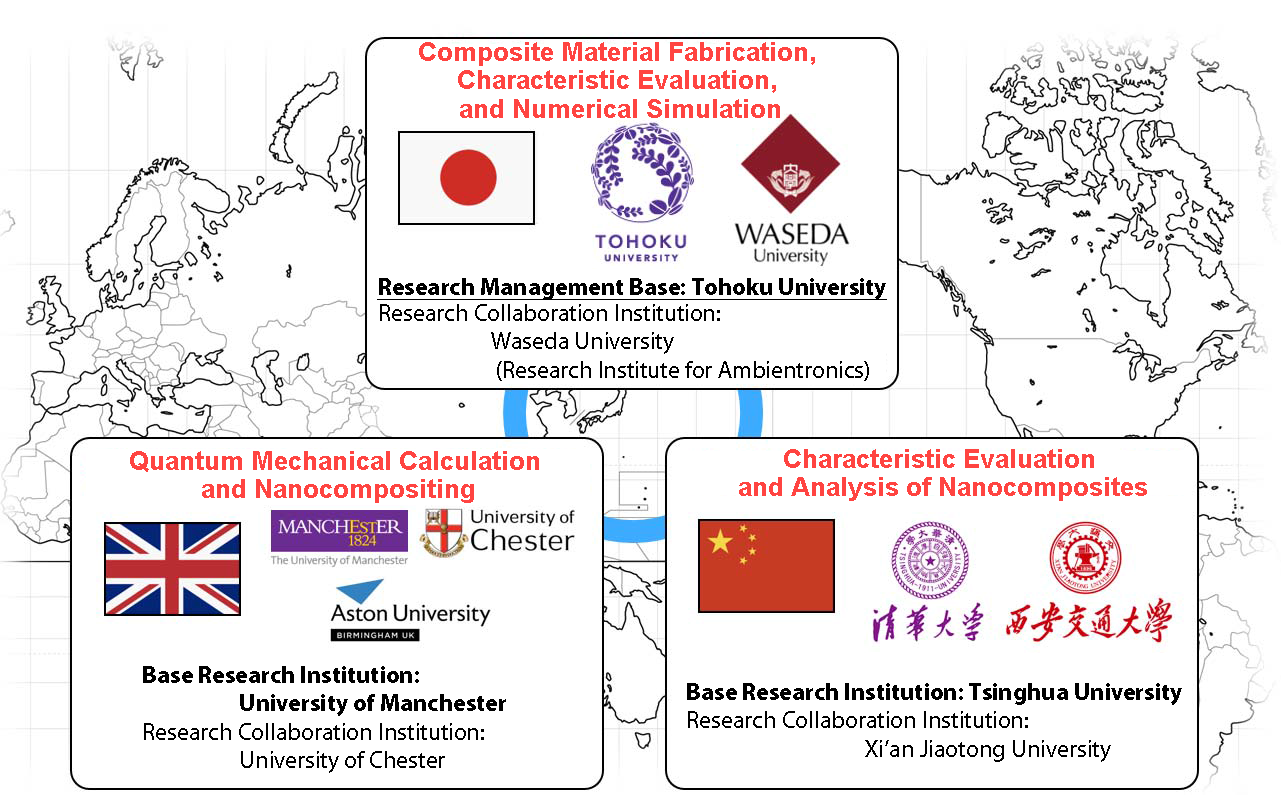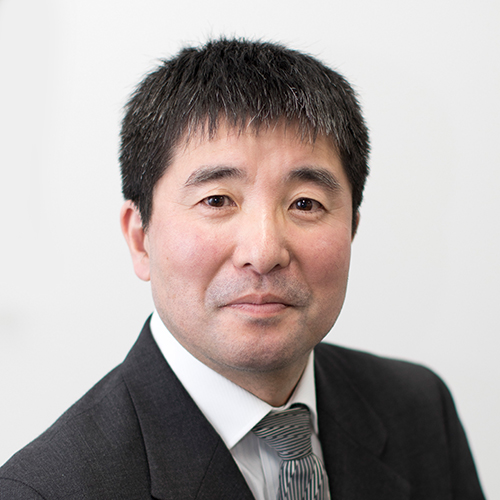Research Exchange Objectives
Energy harvesting materials are used to convert energy in our everyday environment that we do not take advantage of (such as vibrations, impacts, heat, light, and radio waves) into electric power. These are a vital part of bringing a true IoT (Internet of Things) society to life, with no reliance on power sources. However, few of the energy harvesting materials currently in development have been put to practical use, due to their low power generation capacity and short lifetimes caused by issues such as their brittleness, as well as the many unknowns in material structure and shape for improved power generation efficiency. As a result, there is an urgent need to establish design approaches for high-performance energy harvesting materials, and to develop energy harvesters.
This project aims to establish an education and research base to accelerate progress in research related to energy harvesting materials and harvesters, at the School of Engineering and Graduate School of Environmental Studies of Tohoku University, a worldwide materials science leader that has long been engaged in research on electromagnetic materials. To do so, we will establish an international joint research system in cooperation with researchers in the UK and China, who are at the forefront of the field of energy harvesting materials, and we aim to lay the academic groundwork for the development of multi-source energy harvesters. This joint research system will focus on piezoelectric materials that can directly convert force into electricity, thermoelectric materials that can directly convert heat into electricity, and magnetorestrictive materials that convert magnetic fluctuations produced by coiled wires into electricity. We will also hold international exchange seminars, and establish a student exchange and internship program, on multi-source energy harvesting materials and harvesters. These will serve to help build a program to train a new generation of researchers to play active roles in interdisciplinary fields that integrate materials science, mechanical engineering, electron physics, and more. Training a new generation of researchers will enable ongoing research on energy harvesting materials and harvesters, and even if these young researchers trained through this project move on to work in industrial fields, rather than at universities and research institutes, they will be able to establish a system capable of promoting collaboration between industry and academia. Afterward, our goal is to ultimately develop into a base for international joint research, including companies, to help make energy harvesters a practical reality as soon as possible. The knowledge gained through this project will have a tremendous impact on society, by enabling the proposal of devices that can be powered by harvesting kinetic and thermal energy from the automotive and aerospace fields and sports, and even from everyday activities like walking.
Overview of Our Research Exchange Plans
For this project, we have set three tasks for international joint research (1), which will proceed in collaboration with researchers in the partner countries. We will hold regularly scheduled video teleconferences to monitor research progress, and to give the participating institutions an opportunity for routine interaction. Additionally, annual seminars (2) will rotate among the participating countries, with the goal of ongoing collaboration and continued joint research afterward. At these seminars, the young researchers and students from each institution will have the opportunity to report on the results they have obtained through this project, and to improve their English skills and international awareness. In addition to the regularly scheduled video teleconferences, the young researchers and students from each institution will live abroad at institutions in participating countries for a period of a few months, through a researcher exchange program (3), to conduct two-way joint research.
(1) Joint Research
- Theoretical research on the behavior of multi-source energy harvesting materials and harvesters (Tohoku University, University of Manchester, Waseda University)
- Experimental research on the behavior of multi-source energy harvesting materials and harvesters (Tohoku University, Aston University, Xi’an Jiaotong University)
- Creation and evaluation of multi-source energy harvesting nanocomposites and harvesters (Tohoku University, Tsinghua University, University of Chester)
(2) Seminars
The first annual seminar will be held in Japan, in Sendai or Tokyo. The second will be held in the UK, the third in China, and the fourth in Japan. The fifth annual seminar will be held in the UK, to review the project as a whole.
(3) Researcher Exchange
We will hold regularly scheduled video teleconferences roughly once per month, and establish international research exchange and internship programs lasting for a period of a few months.
In addition to writing internationally co-authored papers through the effective combination of (1) through (3) above, we also aim to promote ongoing international joint research projects, revitalize inter-university exchange, and foster a sense of international awareness in young researchers from Japan.
Implementation Schematic

Establishing an International Research Base for Multi-Source Energy Harvesting Materials and Harvesters To Bring an IoT Society to Life
Objectives
- Establish an international joint research system to lay the academic groundwork for the development of multi-source energy harvesters
- Establish programs to train distinguished young researchers to play active roles in interdisciplinary fields
Coordinator

NARITA Fumio
Professor, Tohoku University
Consolidating International Knowledge of Energy Harvesting Materials in Japan, and Accelerating the Practical Application of Energy Harvesters
Experimental Investigation of Research on Materials for Energy Harvesting
Tohoku University & Waseda University
Aston University (excels at process) & Xi’an Jiaotong University (excels at sensor application)
Theoretical Investigation of Research on Materials for Energy Harvesting
Waseda University & Tohoku University
University of Manchester (excels at theory)
Creation of energy harvesting nanocomposites
Tohoku University & Waseda University
Tsinghua University (excels at nano-evaluation) & University of Chester (excels at nano-printing)
- Accumulation of academic fundamental theoretical and experimental knowledge on energy harvesting materials
- Design of high-performance energy harvesting materials and proposal of practical energy harvesters

